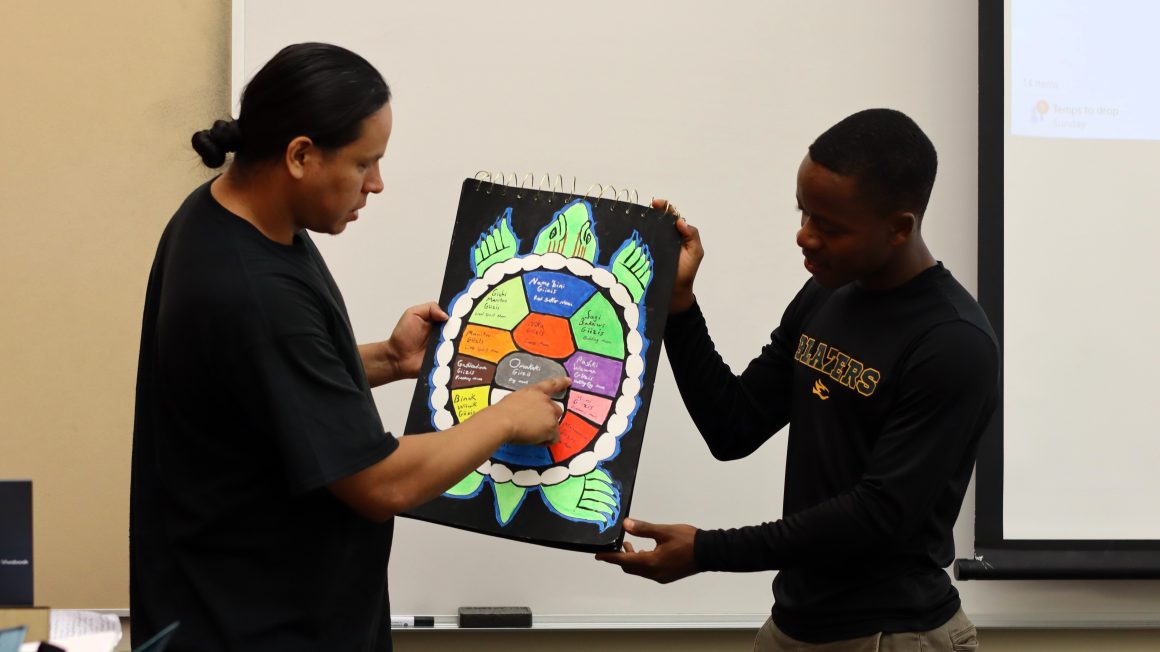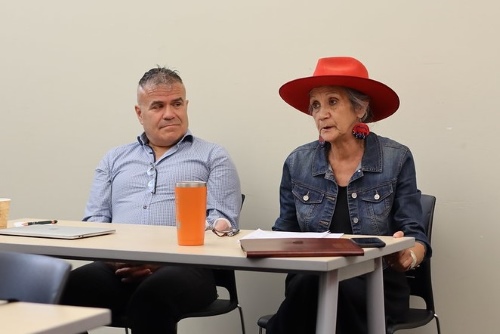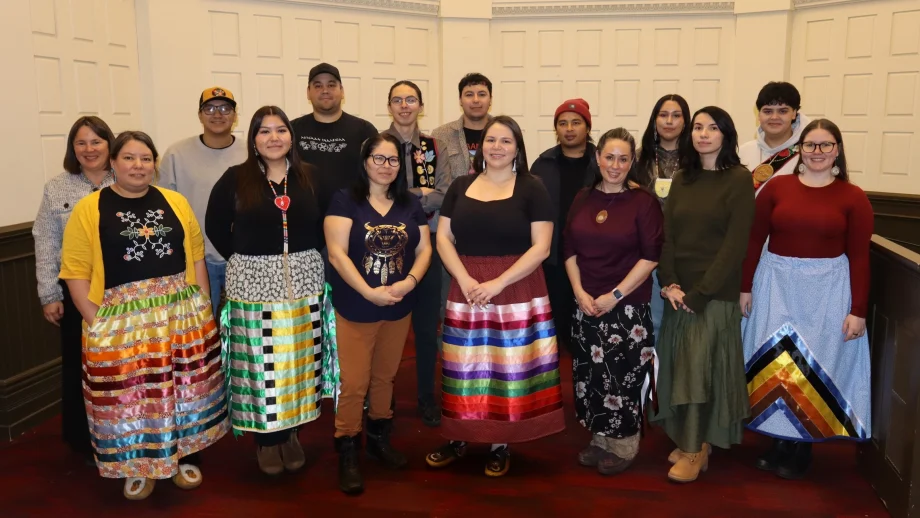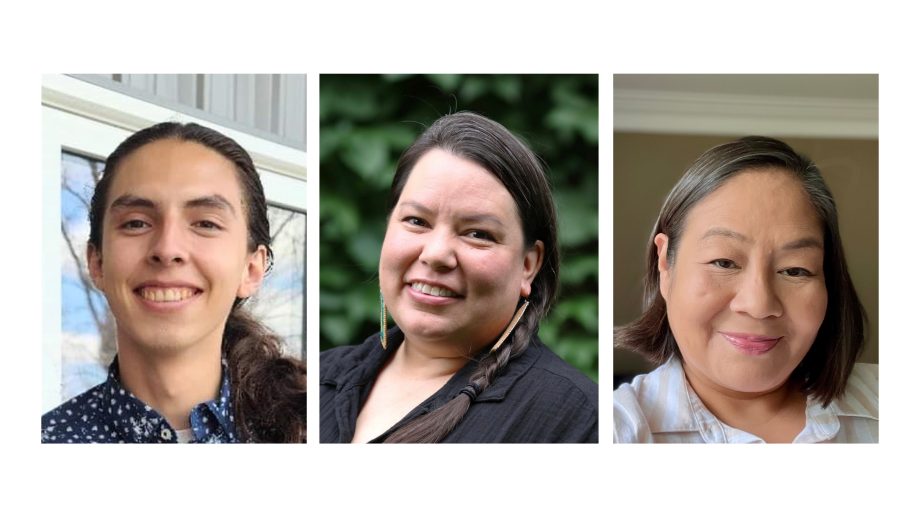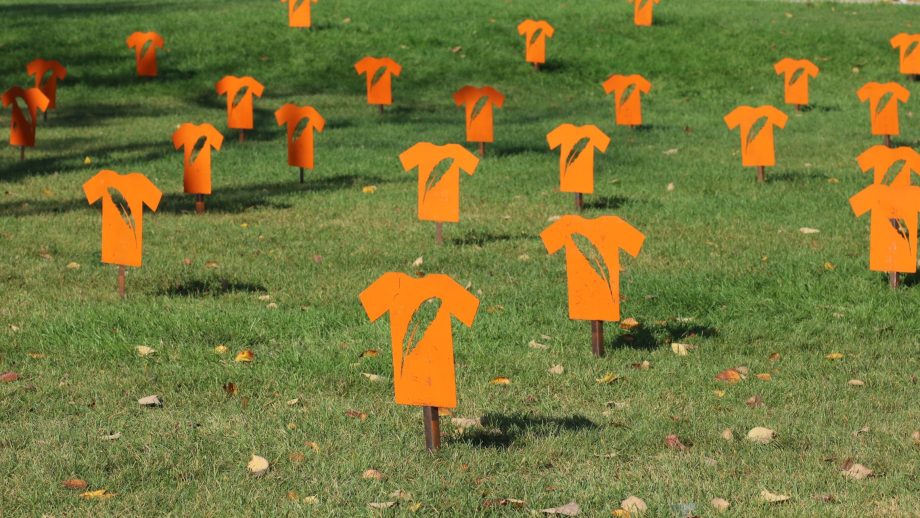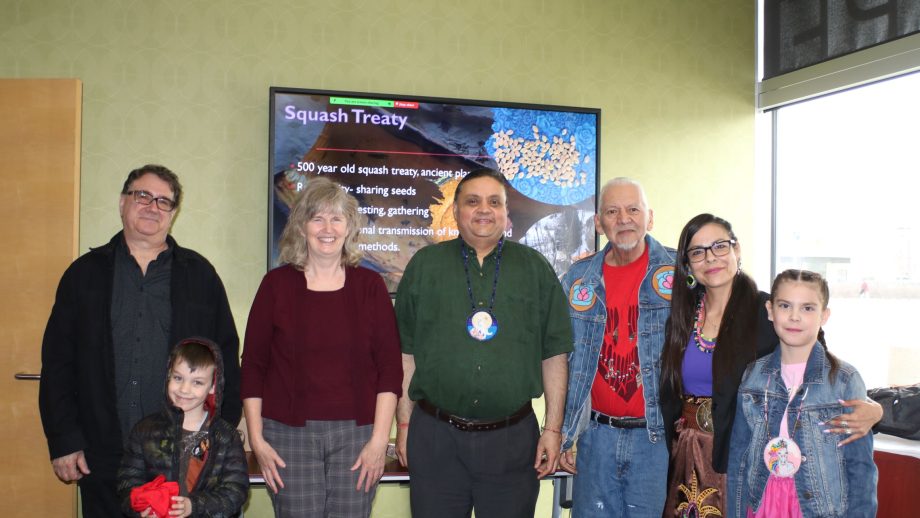Students and special guests gathered in a University of Winnipeg classroom on July 25 to cap off another summer of land-based experiential learning in the Indigenous Food Systems course, which took them from the classroom to the garden to the potluck table.
Dr. Shailesh Shukla, Associate Professor and Chair of the Department of Indigenous Studies, teaches the course alongside Elder Audrey Logan, a Neheyow, Métis knowledge keeper, forager, and food grower.
Students begin with a week of classroom learning followed by a week at Spirit Park Community Gardens, located a short walk from campus. A wrap-up potluck during the final week of class provides an opportunity for students to deliver presentations and share what they’ve learned—and enjoy the fruits of their labour.
A course like this is important because so many people are dissociated from food knowledge.
Chef Dean Herkert
Spirit Park has operated for over 20 years and is home to nearly 70 varieties of native plants. Elder Logan gardens there every weekend. The course’s urban setting keeps its carbon footprint low and makes it more accessible for students.
One goal of the course is to preserve and promote Indigenous knowledge of traditional recipes and land-based lifestyles. Scientific knowledge and Indigenous knowledge are taught side-by-side, and the course counts as a science credit and an Indigenous Studies credit.
Students learn gardening methods like Seven Sisters companion planting, as well as traditional harvesting and storage techniques. Barriers and challenges to Indigenous food systems are also discussed. For instance, Dr. Shukla noted Winnipeg bylaws prohibit certain Indigenous medicines from being planted in front yards because they’re considered weeds.
“Everybody should have the opportunity and right to grow their traditional food and medicines,” he said.
Over raspberry scones and saskatoon juice made from berries grown in Spirit Park, students discussed the most recent local foods they had eaten and delivered multimedia presentations of their final projects.
“You feel good when you’re taking care of stuff,” student Yoanna Shalome said of her time in the gardens.
First up was a presentation on Spirit Park bingo, an educational game in which players must match a plant name to an illustration. Each card includes four facts about a local plant that students learned about during the course.
Next was the presentation of an illustrated moon-cycle calendar showing planting and harvesting cycles, plus traditional storytelling and ceremony information.
The final presentation involved a garden manual of traditional planting techniques, vocabulary, recipes, and traditional teachings, along with tips for gardening in small spaces. A Winnipeg community garden directory was also included, along with a list of best practices for starting a community garden.
Special guests applaud students
Cree Senator Mary Jane McCallum and Métis Chef Dean Herkert of Bistro on Notre Dame attended the class to hear the presentations and share their knowledge and expertise with students.
Sen. McCallum spoke of “the connection of spirituality with food” and told the students they are helping to combat climate change by investing in local food economies.
Chef Herkert, who sources many local and traditional ingredients for his restaurant, agreed.
“A course like this is important because so many people are dissociated from food knowledge,” he said. “Local environments are meant to be sources of food. It’s a re-association we have to make.”
Dr. Brandon Christopher, Associate Dean of UWinnipeg’s Faculty of Arts, told students he has an interest in taking the course too.
“A course like this, that combines traditional academic instruction, hands-on experience on the land, and the sharing of wisdom from Indigenous knowledge keepers is exactly the kind of course that makes UWinnipeg special,” Dr. Christopher said. “It was a real privilege to have the students share their experiences with us.”

